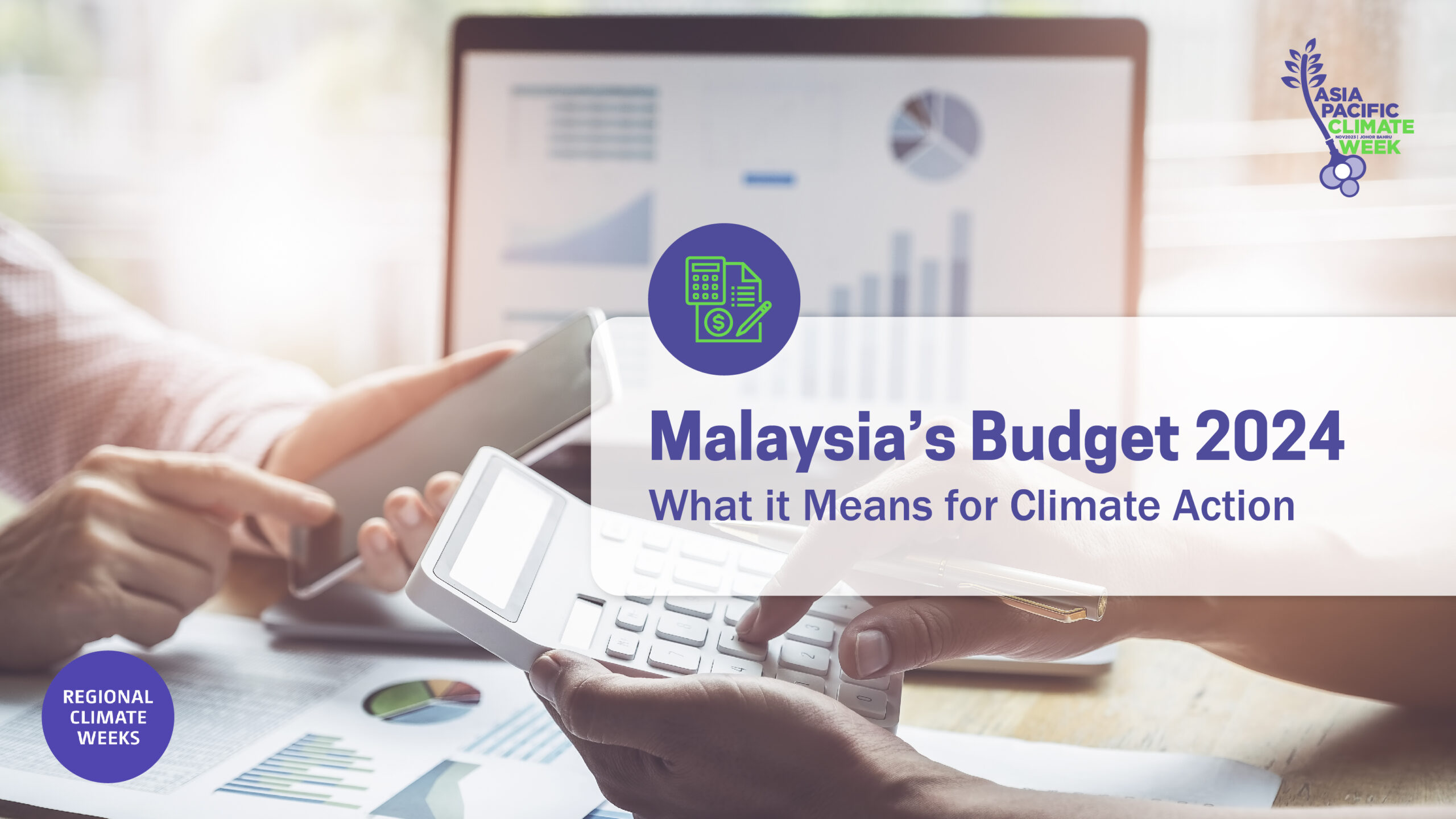
In October this year, Malaysia announced its Budget 2024, themed Reformasi Ekonomi, Memperkasakan Rakyat (Economic Reform, Empowering People). This is the second budget presented by Prime Minister Datuk Seri Anwar Ibrahim, who is also the country’s Finance Minister.
Budget 2024 encompasses RM393.8 billion, with RM303.8 billion allocated for operating expenditure, RM90 billion for development expenditure, and RM2 billion in contingency savings.
Amidst the global urgency to combat climate change, the budget also carves out provisions for reducing greenhouse gas (GHG) emissions, endorsing renewable energy, and promoting climate adaptation initiatives. Here are 5 areas within the budget that will help chart the way for a greener and more sustainable future for Malaysia:
Building upon the recent launch of the National Energy Transition Roadmap (NETR) in July, RM2 billion will be allocated to supporting the country’s low-carbon aspirations. Significant initiatives also include Prasarana’s acquisition of 150 electric buses, the establishment of three bus depots, a planned transition to electric vehicles for federal government use, and the introduction of an Electric Motorcycle Usage Incentive Scheme.
Furthermore, Putrajaya, the federal administrative capital of the country, is earmarked to be the nation’s low-carbon city exemplar. The government is also advocating for domestic solar energy adoption by extending the Net Energy Metering (NEM) program, and encouraging companies to adopt the “Zero Capital Cost” subscription model for solar panels. These initiatives are coupled with plans to install solar panels into government buildings, and tax incentives and investments for green tech ventures such as green hydrogen, integrated waste management, EV charging stations, biomass, mini-hydro, solar, and wind energy projects.
Sustainable Agriculture and Food Security:
The budget also intends to boost agri-commodity sectors and safeguard the income of farming communities. A significant RM2.4 billion will be directed towards Felda, Felcra, and Risda to amplify agri-commodity activities and uplift the socio-economic conditions of smallholders. RM 2.4 billion will also be allocated in subsidies and incentives for the country’s paddy farmers and fishermen.
With rice as a staple diet in the nation, the budget will raise the floor price of the crop to RM1,300 per metric tonne, helping to boost the income of local farmers. RM 400 million will also be dedicated to a Food Security Strengthening programme, and RM50 million to an Agricultural Disaster Fund to provide compensation for up to half of the value of losses incurred due to unforeseen disasters.
Flood Mitigation and Disaster Management:
Malaysia’s disaster preparedness includes an ambitious plan to launch 33 high-priority flood mitigation projects next year. Totalling a cost of RM11.8 billion, these initiatives are meant to safeguard communities against rising flood risks. RM20 million will also be allocated to 150 local authorities to repair damaged sewers and drains, ensuring local systems remain resilient.
To combat the threats posed by unstable terrains, RM563 million will be set aside for nationwide slope repair initiatives, including monitoring, prevention, and early warning systems for regions identified as high-risk. The National Disaster Management Agency (NADMA) will also receive RM300 million to enhance flood preparedness.
Preservation of Natural Ecosystems:
To preserve Malaysia’s rich biodiversity and natural ecosystems, the government will increase the allocation for the Ecological Fiscal Transfer for Biodiversity Conservation (EFT) from RM150 million to RM200 million under the budget. Furthermore, RM1 billion will be allocated for the reforestation of degraded lands and the subsequent generation of carbon credits. Private sector involvement in environmental conservation will also be incentivised through tax deductions, particularly for those sponsoring certified tree planting and related conservation projects.
Boosting SME Involvement and Participation:
Small and medium-sized enterprises (SMEs) make up almost 99% of businesses in Malaysia. Recognising the vital role that SMEs play in the national economy, a whopping RM8 billion in loan funds will be allocated to strengthen these businesses. Of this, RM600 million will be specially allocated to bolster micro-businesses, low-income entrepreneurs, small contractors, and those focusing on sustainability and food security.
Additionally, Syarikat Jaminan Pembiayaan Perniagaan Berhad (SJPP) will underwrite up to 80% of loans taken by SME entrepreneurs. This could potentially be beneficial for those within the green economy and technology sectors.
What does this mean for climate action in Malaysia?
Malaysia’s Budget 2024 is a reflection of the country’s commitment to sustainability, resilience, and a forward-looking approach in the face of global climate challenges. By allocating significant resources to renewable energy, sustainable agriculture, flood mitigation, ecosystem preservation, and SME empowerment, Malaysia is setting a clear pathway towards a greener, more sustainable future.
Nevertheless, the truth remains that climate change is a global concern that transcends borders. Mitigating its effects requires cooperation, collaboration, and collective action from stakeholders across the globe. In this context, events such as Asia Pacific Climate Week (APCW) play a pivotal role, serving as a platform for nations to come together, share insights, and forge partnerships. With APCW less than one week away, we look forward to gathering and charting innovative and impactful pathways for climate action that resonate across Asia Pacific and beyond.
APCW 2023 is organised by the United Nations Framework for Climate Change Convention (UNFCCC) and hosted by the Johor State Government in Malaysia
For more information, follow us on Facebook, Instagram, X, or LinkedIn.